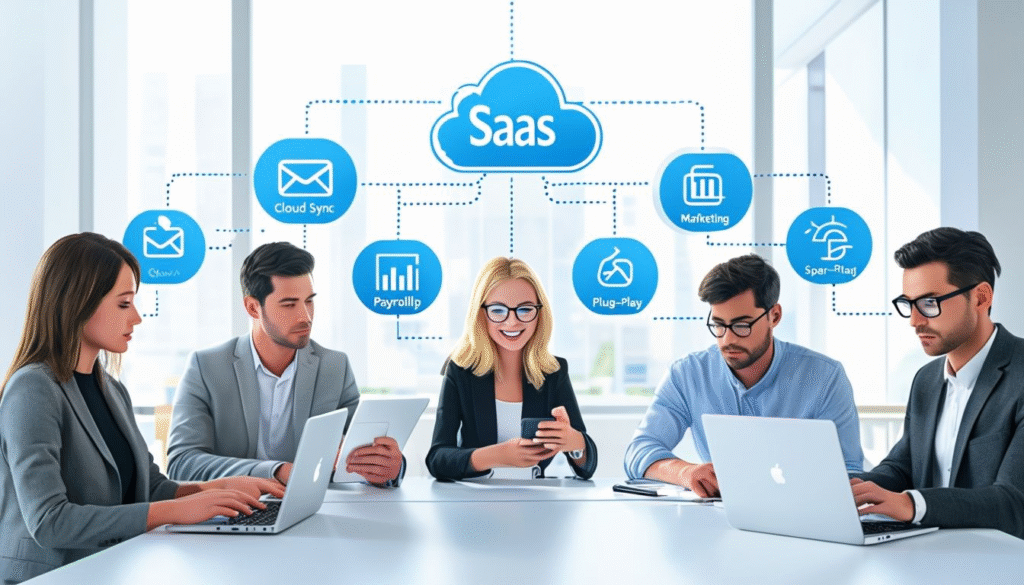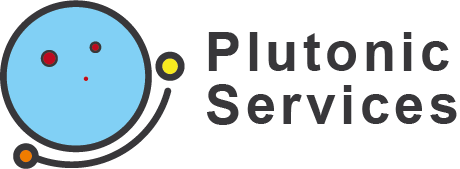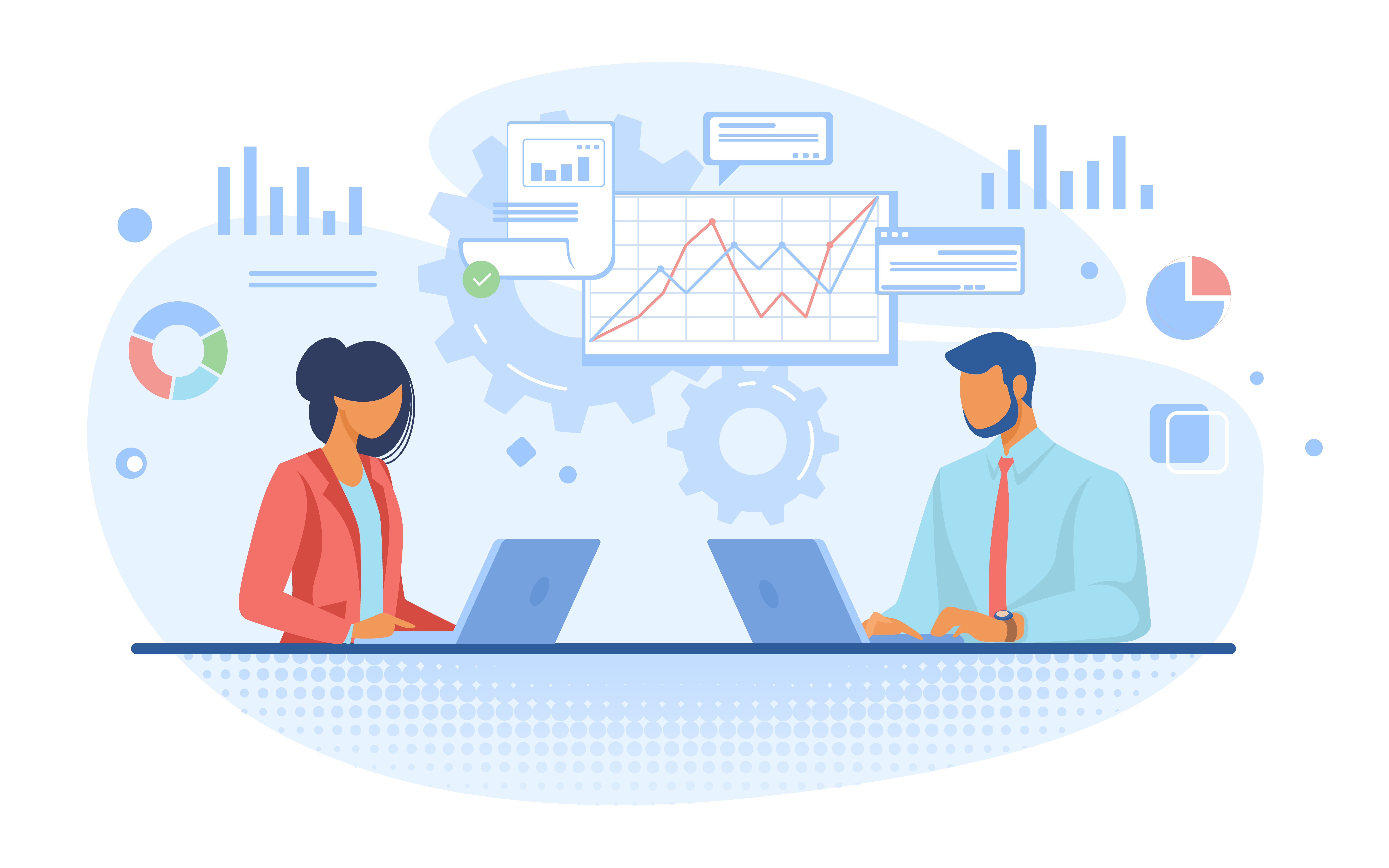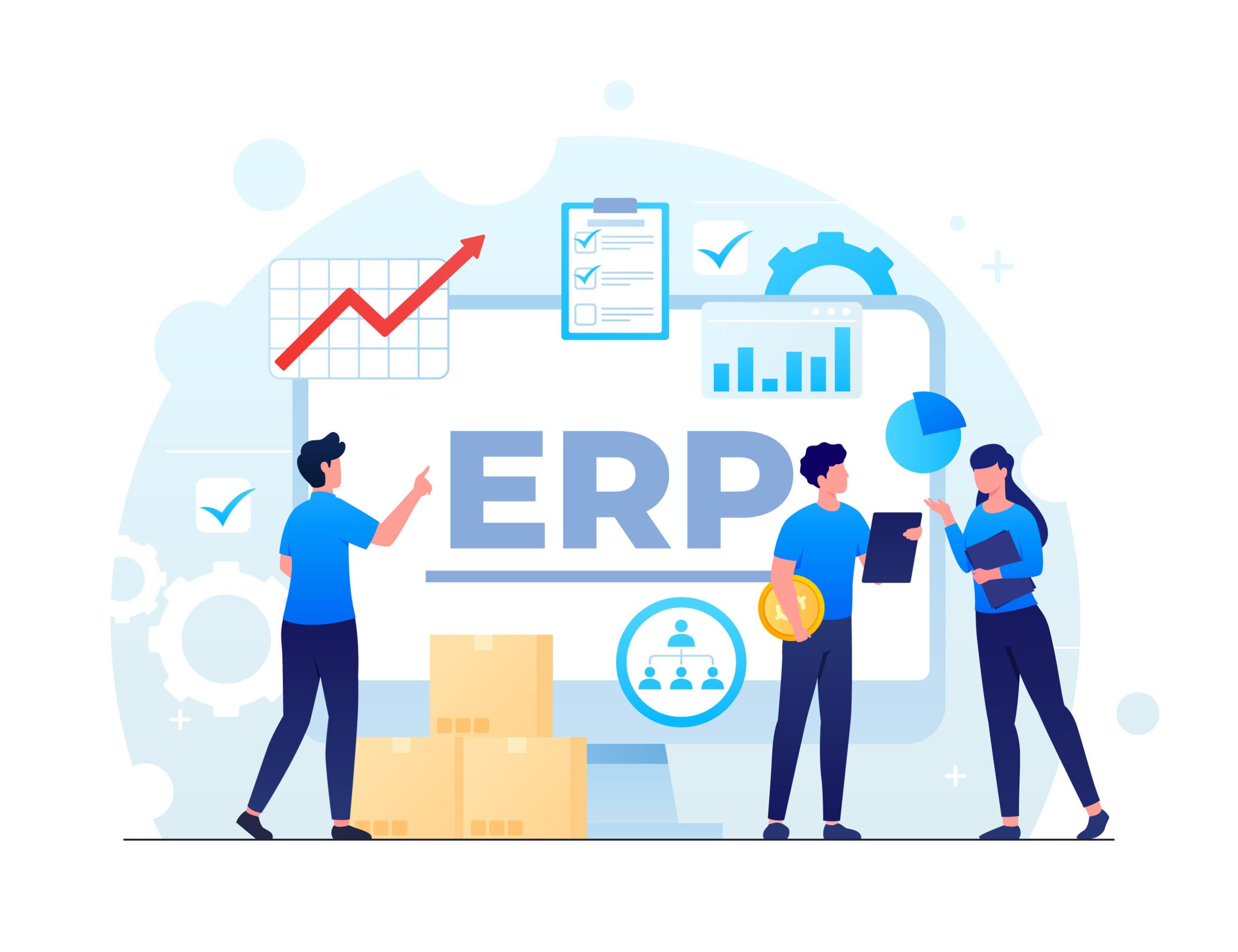
Choosing the right business software solution is a strategic decision, one that can directly affect your company’s efficiency, scalability, and operational control. When it comes to ERP vs SaaS, many business owners find themselves evaluating two powerful, yet fundamentally different models.
While SaaS tools are widely adopted by startups and small businesses due to their simplicity and low upfront costs, ERP (Enterprise Resource Planning) systems offer unmatched depth, integration, and long-term control, especially for organizations managing multiple departments, high volumes, or complex workflows.
In this blog, we’ll explore what makes ERP a centralized powerhouse, how it compares with SaaS in five critical areas, and why ERP might be the best choice for your business.

Understanding ERP: A Centralized Powerhouse
ERP systems are comprehensive platforms designed to centralize all your core business functions under one umbrella – from finance and HR to inventory, CRM, and production. Traditionally installed on-premise, modern ERP platforms now also offer cloud-hosted options, giving companies the flexibility of remote access without compromising on customization and control.
Key Benefits of ERP Systems:
- Centralized Data Management: All your business data lives in a single platform, reducing redundancy and improving accuracy.
- Custom Workflows and Reports: ERP systems can be tailored to fit unique business processes.
- Deeper Control: Full ownership over configurations, data security, and compliance.
- Scalability: As your organization grows, your ERP system scales with it, supporting complex and high-volume operations.
ERP is ideal for medium to large businesses that value integration, compliance, and control over every aspect of their internal operations.

Understanding SaaS: Flexible, Cloud-Based Simplicity
SaaS (Software as a Service) tools are cloud-based applications built for rapid deployment and ease of use. They’re often targeted toward specific functions like payroll, CRM, or marketing automation and are perfect for companies that need fast solutions without large IT teams.
While SaaS has many merits, including affordability and accessibility, it lacks the unified architecture of ERP systems, which can create data silos as businesses grow and adopt multiple disconnected tools.
5 Key Differences Between ERP and SaaS
Here’s how ERP and SaaS compare across five core business areas:
1. Deployment & Infrastructure
- ERP: Requires installation (either on-premise or cloud-hosted), typically managed by IT professionals or external vendors. It becomes part of your infrastructure.
- SaaS: Fully cloud-based with no installation. Accessed via login, typically hosted by the provider.
2. Customization
- ERP: Offers deep customization to support your unique workflows, reporting needs, and compliance structures.
- SaaS: Usually limited to out-of-the-box features and basic settings. Not ideal for businesses that need tailored solutions.
3. Integration & Ecosystem
- ERP: Integrates internal functions deeply, offering real-time visibility across departments like finance, HR, and supply chain.
- SaaS: Easily integrates with other cloud tools but often lacks cohesion across different platforms unless intentionally connected.
4. Cost Structure
- ERP: Involves high upfront costs, licensing fees, and ongoing maintenance, but proves more cost-effective in the long run for larger businesses.
- SaaS: Subscription-based, pay-as-you-go model. Low barrier to entry but may become expensive as you add more tools.
5. Scalability & Maintenance
- ERP: Designed for scale. Supports multi-location, multi-department operations with ease. Maintenance may be internal or vendor-driven.
- SaaS: Easily scalable in user count but may fall short in managing complex workflows or high data volumes.
Why ERP is the Smarter Long-Term Investment
For businesses that are expanding rapidly or operating across multiple locations and departments, ERP is often the smarter investment. Here’s why:
- Consolidation of Tools: Instead of managing separate SaaS apps for HR, finance, CRM, and inventory, ERP brings them all together.
- Compliance & Data Governance: ERPs can be customized to meet industry-specific regulations and offer greater control over sensitive data.
- Business Intelligence: With unified data, ERP systems provide robust analytics and reporting, supporting strategic decision-making.
- Process Automation: ERP automates recurring tasks across departments, increasing efficiency and reducing human error.
When SaaS Might Still Make Sense
While ERP systems offer a full-stack approach, there are scenarios where SaaS tools may still be appropriate:
- Startups or early-stage businesses with limited IT budgets
- Remote or distributed teams needing quick collaboration tools
- Companies that require only one or two functions (e.g., just a CRM or payroll tool)
- Temporary or seasonal operations that don’t warrant long-term infrastructure
Still, these businesses may eventually transition to ERP as their needs grow more complex.
Hybrid Approach: ERP with SaaS Extensions
Some companies choose to combine the best of both worlds. They run a robust ERP core and extend it with niche SaaS tools where needed – like customer communication (e.g., Zendesk) or email marketing (e.g., Mailchimp). This hybrid approach allows for flexibility without losing centralized control.
Conclusion: ERP vs SaaS – What’s Right for Your Workflow?
If your business is growing, handling complex processes, or requires deep compliance and reporting, ERP is your long-term solution. While SaaS may serve immediate needs, it often becomes fragmented as companies scale.
Choose ERP if you want:
- A unified platform to manage everything from HR to logistics
- Full control over data, processes, and integrations
- Long-term scalability and ROI
- Custom workflows and comprehensive reporting
At Plutonic Services, we specialize in building, implementing, and scaling ERP systems tailored to your business goals. Whether you’re considering your first ERP or looking to upgrade from disconnected SaaS tools, our consultants can help you chart the best course forward.
Talk to our team today and future-proof your business operations.



